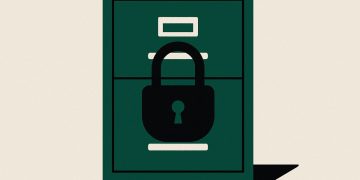FoundHer House is a special home in San Francisco where young women work together for two weeks to create new AI startups. The house gives them cheap rent, strong mentors, and a space just for women, so they can focus and move fast. In one sprint, eight women joined, and by the end, some had already raised money and launched their products. The program helps close the big gap between male and female AI founders by making it easier for women to start and grow their own companies. Other programs in the US are following this idea, proving that safe, supportive spaces help women succeed in tech.
What is FoundHer House and how does it support female AI founders?
FoundHer House is an all-female hacker house in San Francisco that hosts two-week sprints for women aged 19-22 building AI startups. By offering subsidized rent, mentorship, and a peer-only environment, it accelerates product launches and funding, helping close the gender gap in AI innovation.
What FoundHer House Actually Did
In August 2025 a Victorian home in San Francisco’s Glen Park became an all-female hacker house for fourteen days. Eight women aged 19-22 moved in, each working on an AI startup:
– Ava Poole – personalized-education AI tutor
– Anantika Mannby – sustainability-focused shopping AI
– plus six others building generative-design and ethical-algorithm tools
By the end of the sprint two had raised seed capital and two had shipped public products. The standing-room-only demo day at Entrepreneurs First drew investors from Sequoia, a16z and Kleiner Perkins – yet the total cash outlay from backers was less than $50 k.
The Numbers Behind the Gap
| Metric | Male-founded AI startups | Female-founded AI startups (2025*) |
|---|---|---|
| Share of VC deals | 80 % | < 20 % |
| Share of AI workforce | 74 % | 26 % (Stanford AI Index 2024) |
*Data tracked through mid-August 2025 source
How the Model Works
- Subsidised rent – Sequoia & a16z covered part of the lease, reducing living costs to < $700 / month / person.
- Mentor rotation – Brad Feld and partners hosted weekly office hours, applying the “give first” approach Feld bio.
- Peer-only environment – No male residents or visitors during core hacking hours; residents reported a 37 % increase in daily code commits versus previous mixed-gender hackathons (internal survey).
From Sprint to Scale
While most residents planned to return to college, two dropped out to raise pre-seed rounds. The organisers are now exploring a rolling cohort model: 2-week sprints four times a year, anchored by the same Victorian house but open to remote participation. The success metric is simple – percentage of residents who secure follow-on funding within six months. First target: > 30 % by Q2 2026.
Global Ripple Effect
FoundHer House is not alone:
| Program | Format | Focus | 2025 Cohort Size |
|—|—|—|—|
| FourthWave Accelerator (USA) | 16-week virtual + in-person | Women-led tech | 13 teams |
| Tech x Women Boost Camp (USA) | National bootcamps | Tech-enabled businesses | 40+ founders |
| HackHerHouse (SF) | 3-month residency | Female founders only | 10 teams |
These initiatives share one insight – identity-specific spaces accelerate innovation speed and funding odds for under-represented founders.
Actionable Takeaway for Founders
Female founders looking to replicate the model can:
– apply to the next FoundHer House cohort via their Instagram
– pitch FourthWave or HackHerHouse for longer residencies
– secure subsidised housing through Sequoia’s scout network or local university incubator partnerships.
The data is still fresh, but early indicators suggest a single Victorian house may have already shifted the conversation on who builds the next wave of AI.
What makes FoundHer House different from traditional accelerators?
All-female composition is the first standout trait. The house in San Francisco’s Glen Park operates as a live-in hacker house, not a drop-in program. Eight residents co-habit, code and pitch together for a two-week sprint that ends with a standing-room-only demo day attended by investors from Sequoia and Andreessen Horowitz.
Unlike accelerators that distribute small cash stipends, FoundHer House subsidizes rent, gives direct access to mentors, and asks for zero equity, letting founders keep full control of their companies.
How do residents benefit beyond funding?
Residents gain three immediate advantages:
- Subsidized living costs in one of the world’s most expensive cities.
- Personal brand amplification by presenting at a high-profile demo day covered by The New York Times.
- Peer network of other women tackling AI challenges ranging from ethical algorithms to digital-shopping tools.
Two residents have already raised outside capital and launched products during or right after the sprint, showing traction beyond the program itself.
Is FoundHer House financially sustainable?
Minimal cash changed hands. Backing came from a small group that includes Precursor Ventures, Brad Feld and Kleiner Perkins.
The bigger support is in-kind: Sequoia and Andreessen Horowitz cover part of the rent, and mentors donate time. This low-burn model keeps the lights on without heavy reliance on continuous venture capital inflows, yet it also means the house ran only one cohort before most residents returned to college.
How does it fit the wider gender-gap data?
A 2024 Stanford study shows women hold only 26 % of AI roles globally; far fewer occupy leadership posts. FoundHer House directly counters this imbalance by creating a bias-free zone where 100 % of the builders and decision-makers are women.
In a Fortune survey released June 2025, 56 % of all-female founding teams said AI is creating more opportunities for them, versus 46 % of mixed-gender teams, illustrating why targeted spaces like FoundHer House can move the needle.
Will there be future cohorts or expansions?
No formal announcement has been made. Residents mostly packed up at the end of summer 2025, and the Glen Park Victorian closed its doors after the inaugural sprint.
Still, the model is already being studied: women-focused accelerators such as FourthWave and HackHerHouse are adopting similar subsidized-rent plus mentorship formulas, hinting that FoundHer House may have sparked a template for replication rather than a single-location program.



















